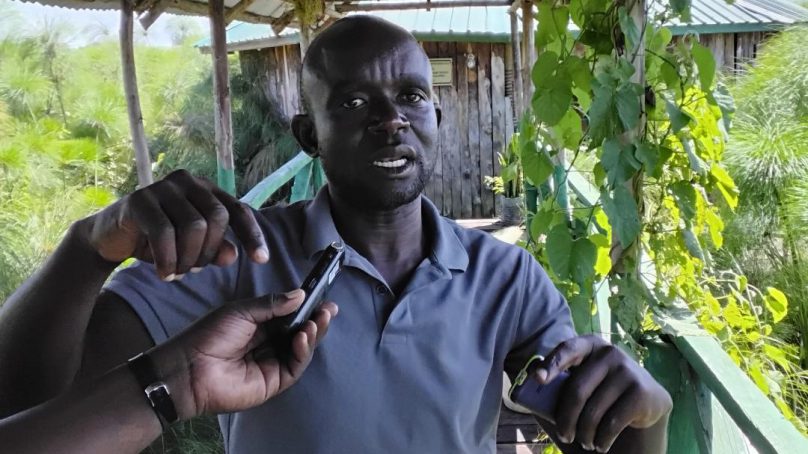
Dozens of migratory birds have landed in Kisumu’s wetlands to coincide with global celebrations for World Migratory Bird Day get underway. However, conservationists warn that habitat loss, pollution and hunting are fast dimming the skies over Lake Victoria’s biodiversity haven.
Local conservationists under the Friends of Dunga Swamp Site Support Group, in partnership with Nature Kenya, reported sightings of at least nine migratory bird species during field surveys conducted in key habitats that include Dunga Swamp, Hippo Point, Ndere Island National Park, Nyamware and the shores of Lake Victoria.
Among the species recorded were Yellow Wagtail, Barn Swallow, Common Sandpiper, Common Redshank, Spotted Redshank, Wood Sandpiper, Purple Heron, Broad-billed Roller and the Little Thrush (Gobbler).
Interviewed, Hesbon Okoth, a conservator with Friends of Dunga, said the observations reaffirm Dunga and Kisumu’s Lake Victoria shoreline’s as a vital key biodiversity area (KBA) and a critical stopover for migratory birds.
The birds, he said, were captured through a special application developed by the group to capture and monitor bird species in the area.
The exercise, which is still underway, targets to capture over 70 migratory and new bird species as part of the World Migratory Birds Day (WMBD) that is a global awareness campaign celebrated twice a year – in May and October – to spotlight the conservation of migratory birds and their habitats.
The day underscores the need for cross-border cooperation as millions of birds travel thousands of kilometres each year that face threats such as habitat destruction, pollution and illegal hunting.
Okoth said that this year’s theme of ‘Shared Spaces Creating Bird-Friendly Cities and Communities’ underscores the need for all stakeholders, governments, urban planners and communities to create spaces, where both people and wildlife can thrive.
Through collaboration with Nature Kenya, Friends of Dunga Swamp have established nine transects in Kisumu, where they conduct regular biodiversity monitoring to track population trends and detect early warning signs of habitat decline.
“Birds are bio-indicators of climate change; when they decline, it is a warning sign for us all,” Okoth said, urging residents to stop hunting or eating wild birds, which he described as “key partners in maintaining ecological balance.”
Beyond migratory species, the Dunga wetland, remains home to papyrus-specialist birds such as the Papyrus Yellow Warbler, Papyrus Gonolek, white-winged Warbler, Papyrus Canary, and Carruthers’s Cisticola, listed as threatened under the International Union for Conservation of Nature (IUCN) Red List.
Okoth warned that the wetlands, which are a key habitat for birds face multiple pressures including encroachment, pollution and the use of illegal monofilament nets, which trap both migratory and resident species.
He was concerned that the consumption of birds such as Grey Crowned Crane, Hadada Ibis, Hamerkop, Egyptian Goose and Great White Pelican continues to threaten biodiversity in the area.
The group has also partnered with Kenya Wildlife Service (KWS) and Nature Kenya to restore degraded swamp areas by planting papyrus, conduct regular bird monitoring, and raise awareness among lakeside communities on the importance of conservation.
Kisumu’s rich birdlife, contributes to the region’s growing ecotourism sector, but unchecked degradation could undermine this economic potential.
“If we lose the birds, we lose a major attraction for visitors. Protecting the wetlands is not just about nature, it’s about our livelihoods,” Okoth said.
- A Tell Media / KNA report / By Chris Mahandara
Friends of Dunga Swamp Site Support Group conservator Hesbon Okoth during the interview with KNA at Dunga beach in Kisumu on 11th October 2025.Photo by Chris Mahandara.







